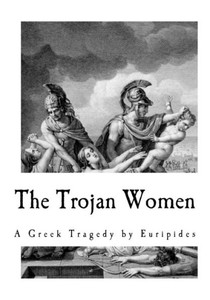

The Bacchae Of Euripides: An Ancient Greek Tragedy (Euripides - Greek Tragedy)
CreateSpace Independent Publishing Platform
ISBN13:
9781535369787
$10.57
The Bacchae of Euripides - Euripides - Translated by Edward P. Coleridge - The Bacchae is an ancient Greek tragedy, written by the Athenian playwright Euripides during his final years in Macedonia, at the court of Archelaus I of Macedon. It premiered posthumously at the Theatre of Dionysus in 405 BC as part of a tetralogy that also included Iphigeneia at Aulis and Alcmaeon in Corinth, and which Euripides' son or nephew are assumed to have directed. It won first prize in the City Dionysia festival competition. The Bacchae is concerned with two opposite sides of human nature: the rational and civilized side, which is represented by the character of Pentheus, the king of Thebes, and then there is the instinctive side, which is represented by Dionysus. This side is sensual without analysis, it feels a connection between man and beast, and it is a potential source of divinity and spiritual power. In Euripides' plays the gods represent various human qualities, allowing the audience to grapple with considerations of the human condition. The Bacchae seems to be saying that it is perilous to deny or ignore the human desire for Dionysian experience; those who are open to the experience will find spiritual power, and those who suppress or repress the desire in themselves or others will transform it into a destructive force. The tragedy is based on the Greek myth of King Pentheus of Thebes and his mother Agave, and their punishment by the god Dionysus (who is Pentheus' cousin). The god Dionysus appears at the beginning of the play and proclaims that he has arrived in Thebes to avenge the slander, which has been repeated by his aunts, that he is not the son of Zeus. In response, he intends to introduce Dionysian rites into the city, and he intends to demonstrate to the king, Pentheus, and to Thebes that he was indeed born a god. However, as the play proceeds Dionysus encounters what he considers newly occurring reasons to be angry, and in his capriciousness, the audience watches his revenge grow out of proportion. By the end of the play, there is the horrible and gruesome death of the king and the wrecking of the city of Thebes by the destruction of its ruling party and by the exiling of its entire population. Dionysus will further cause the plundering of a number of other cities.
- | Author: Euripides, Edward P Coleridge
- | Publisher: CreateSpace Independent Publishing Platform
- | Publication Date: Jul 19, 2016
- | Number of Pages: 50 pages
- | Language: English
- | Binding: Paperback
- | ISBN-10: 1535369787
- | ISBN-13: 9781535369787
- Author:
- Euripides, Edward P Coleridge
- Publisher:
- CreateSpace Independent Publishing Platform
- Publication Date:
- Jul 19, 2016
- Number of pages:
- 50 pages
- Language:
- English
- Binding:
- Paperback
- ISBN-10:
- 1535369787
- ISBN-13:
- 9781535369787





